
That’s me in the spotlight.
Apologies to R.E.M., but this is the blog post where I talk about God and stuff. Consider this a break-up letter to the church, and to the concept of theism in general. It’s been a fun ride, but all in all, the whole belief-in-God thing is longer something I can subscribe to in good conscience.
Some background:
I grew up in a fairly inoffensive, milquetoast form of Protestant Christianity that primarily consisted of going to church once a week and participating in Sunday school, singing a few nice hymns, listening to a somewhat dry but uplifting sermon, saying a few prayers, and then heading home for lunch and to enjoy the rest of the weekend. Nothing too political (that would be too controversial), too contemporary (that would be too tacky), nor too traditional (that would be too Catholic). It’s the type of church Hollywood turns to whenever they need a generic setting for a wedding scene in a soap opera or romantic comedy.
In my mid-20s I joined the Episcopal Church, which I found more to my liking for a number of reasons. The liturgy and music were richer, the theology less dogmatic and more focused on social justice, it provided a cultural connection to my not-so-distant English ancestry, and they taught me how to make a damn good martini with the right kind of gin. (In fact, the name of this blog harkens back to that period of my life, as a play on “living in sin”.)
Throughout most of this time I was pretty active in the church: I attended Bible studies, went on retreats, volunteered in various capacities, you name it. There were even a few times when I casually flirted with the idea of exploring a call to become an ordained member of the clergy. (In retrospect, that would’ve been a spectacularly terrible idea, as I don’t have a fraction of the skill set that would be required for that kind of vocation, and I probably wouldn’t have made it five minutes into the initial discernment process.)
The highlight of my involvement with the Episcopal Church came during my time in New York City, where I was active at the Cathedral of St. John the Divine in Morningside Heights, the World’s Largest Gothic Cathedral™. During my first visit to the still-unfinished cathedral, I was struck by its immense size and beauty, and in my mind, its incomplete and imperfect state served as the perfect metaphor for God’s unfinished kingdom here on earth. During return visits, I found the cathedral’s architecture, music, liturgy, and social justice work to be icons through which, perhaps, one might catch a glimpse of the divine. I wanted to be part of that, and before long I had joined the Acolyte Guild and was a regular cast member in the cathedral’s worship services. One Sunday in November 2008, I took part in a grand worship service to mark the rededication of the cathedral after a 7-year reconstruction following a devastating fire in 2001, where I got to shake hands with Hillary Clinton and get my photo on the front page of the New York Times.
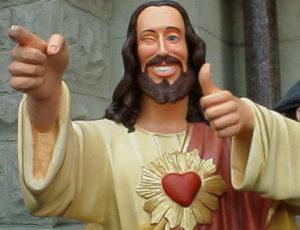 All this backstory is to say that, for the most part, my experiences in the church were fairly positive, and I look back upon them mostly with fondness. I was never molested by a priest, I was never part of a church where fire and brimstone were spewed from the pulpit, and I was never emotionally manipulated into anything that made me feel uncomfortable. I still find magnificent beauty in traditional Anglican liturgy and gothic architecture, some of the old hymns of my childhood still bring a lump to my throat, and I still love the smell of incense and candles wafting through an old stone church.
All this backstory is to say that, for the most part, my experiences in the church were fairly positive, and I look back upon them mostly with fondness. I was never molested by a priest, I was never part of a church where fire and brimstone were spewed from the pulpit, and I was never emotionally manipulated into anything that made me feel uncomfortable. I still find magnificent beauty in traditional Anglican liturgy and gothic architecture, some of the old hymns of my childhood still bring a lump to my throat, and I still love the smell of incense and candles wafting through an old stone church.
Most importantly, there are the people I’ve encountered along the way, many of whom I still consider my closest friends. They include lay people and clergy from a variety of faith traditions, and unlike the charlatans you see flaunting their piety on television and on social media, they truly represent the example of Jesus in ways that I could never hope to approach. Most of them have pulled my ass out of the fire on more than one occasion, and it’s not much of a stretch to say that their friendship during some of the most difficult days of my life literally saved me from suicide.
Which makes my decision to sever ties with the church a difficult one; this isn’t an aspect of my life that I’d toss aside lightly. It would be different if, like so many other people, I had grown up in a spiritually abusive environment and I could give the church a big “fuck you” and flip it the bird as I stormed out the door for the last time. This feels more like a long, protracted breakup with somebody I once deeply loved and still have strong feelings for, even if the cracks in the relationship have been visible and growing for a long time. (In fact, I began writing this blog post over three years ago, and it’s been sitting in my “drafts” folder all this time.) It’s been years since I’ve regularly attended church services, but now it finally feels like time to come out as an atheist.
The doubts had been gnawing at me for about as long as I was old enough to form rational thoughts. To flip a tired phrase on its head, I was religious but not spiritual: I loved the sense of community that came with being part of a healthy faith community, the social bonds that grew out of that, and the reassuring rhythm of the liturgical calendar. But it always felt like I was going through the motions for the sake of appearances, and over the years I became increasingly aware of the unspeakable damage done to individuals and to society in general in the name of religious dogma. My circle of close friends has grown to include militant atheists who wouldn’t be caught dead inside a house of worship, and their ethical code is no less robust than that of somebody who has spent decades of their life in ordained ministry.
As I now write this, the bodies are still being removed from the Pulse nightclub in Orlando, after the deadliest mass shooting on American soil since the massacre at Wounded Knee. (Which was also motivated and enabled by religion, by the way. Manifest destiny, anybody?) The specific motives of the gunman are still being probed and debated by a million armchair experts, but what’s certain is that 49 people were massacred in a gay nightclub because of who they were and who they loved, and no amount of hollow “thoughts and prayers” will change the fact that religious dogma is at the root of so much of the hatred and violence in the world today, and indeed throughout most of human history.
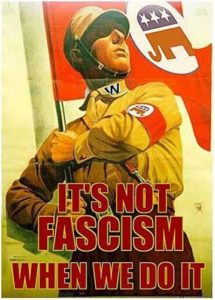 All this is occurring against a backdrop of violent religious fundamentalism that seems to be consuming the nation and the world like a cancer. I used to think the abuses were committed by a few bad apples, but I’m increasingly convinced that, despite the good works done by some adherents, the entire premise of religion is structurally flawed and ultimately causes more harm than good in the world. The abuses and violence seem like the default condition, and charity and kindness the exception. Sinclair Lewis’s 1932 prediction that “when fascism comes to America, it will be wrapped in the flag and carrying the cross” now seems alarmingly prescient.
All this is occurring against a backdrop of violent religious fundamentalism that seems to be consuming the nation and the world like a cancer. I used to think the abuses were committed by a few bad apples, but I’m increasingly convinced that, despite the good works done by some adherents, the entire premise of religion is structurally flawed and ultimately causes more harm than good in the world. The abuses and violence seem like the default condition, and charity and kindness the exception. Sinclair Lewis’s 1932 prediction that “when fascism comes to America, it will be wrapped in the flag and carrying the cross” now seems alarmingly prescient.
And perhaps infused with a certain dose of cynicism, my mind has grown increasingly skeptical of any claims involving the supernatural. Out of the thousands of deities that have been worshipped by humankind over the course of history, I’m supposed to believe that the correct deity just happens to be the one worshipped by the tradition I just happened to be born into? That seems like a stretch. I’m open to the idea that our lived reality offers only a dim glimpse of ultimate truth — maybe we’re all in some Matrix-style computer simulation and what various religions have perceived to be gods are merely glimpses of The Architect who programmed it all — but extraordinary claims require extraordinary evidence. I won’t pretend that modern-day science has an explanation for more than a small fraction of all that is knowable about our universe and our place in it, but it provides a robust method of inquiry and openness to critical inquiry that I’ve always found lacking in even the most liberal denominations.
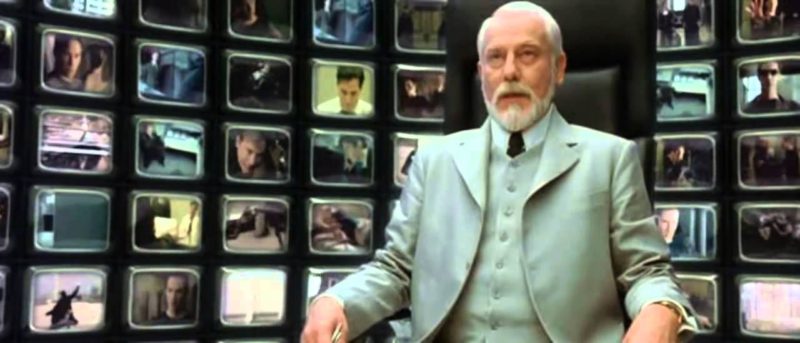
“I am the Architect. I created the Matrix. I’ve been waiting for you. You have many questions, and although the process has altered your consciousness, you remain irrevocably human. Ergo, some of my answers you will understand, and some of them you will not. Concordantly, while your first question may be the most pertinent, you may or may not realize it is also the most irrelevant.”
Funny thing is, there’s no fancy ceremony when you renounce the concept of religion; I guess most people who do so just stop showing up to church and becomes the subject of gossip during coffee hour. There’s also no obligation to pick a congregation or recite a creed. The old joke goes that an atheist, a vegan, and a Crossfit trainer walked into a bar, and we only know this because they told everybody within two minutes. My own views are still evolving and will hopefully continue to evolve as long as I’m alive, but right now this blog post I stumbled across on a Google search seems to do a pretty good job of articulating my own point of view. I am an atheist, an agnostic, a skeptic, and a humanist, with explanations via selected quotes from the aforementioned link:
Atheist
Atheism is the rejection of God assertions due to the lack of objective empirical evidence for all such claims. […] It is not a religion, no faith is required. Instead it is the null hypothesis, and so until somebody asserting a god claim coughs up some credible evidence, all such claims can be dismissed.
Agnostic
I do not assert a no-god claim, I have no evidence for such an assertion, and so in that sense I am not only a non-believer, but I am also agnostic. I do indeed find no evidence for god claims, and I also find the assertion to be highly improbably, just as I find the pink unicorn hypothesis to be improbable. In essence – I hold to the null hypothesis and until some credible evidence comes to light, then that is where I stand, and so I am not asserting a no-god claim, I am simply rejecting the daft god-claims.
Skeptic
I think of skepticism as the application of critical thinking to any and all claims, be they religious or non-religious. So when faced with any form of woo, … quack medicine, lake monsters, ghosts, aliens, free energy, psychics (frauds), or religious claims, etc… then you can think of this as a methodology that may be used to determine what is and is not true.
Humanist
I am convinced that most humans (with or without a belief) are decent honourable humans who strive to do what is right. It is humanism that leads me down this road and takes me to a place where we can deploy reason and logic instead of blind dogma to strive for ethics and justice. Belief might indeed dictate that slavery is a jolly good idea and that being gay is a hideous crime, but by deploying some reason and logic it quickly becomes clear that slavery is wrong as is the anti-gay stance.
I first began this blog post back in 2012, during a year when I was making a conscious effort to purge my life of thoughts and habits that I felt were distracting me from living up to my full potential. It’s taken that long to finally come to grips with where I honestly stand on the theological spectrum between belief and non-belief, but here it is. Comedian John Fugelsang once tweeted, “Give me a Christlike atheist over a Godless Christian any day”, and I’ve decided that I’d much rather fall into the latter category than the former.
I may still occasionally show up for Evensong at the cathedral whenever I find myself back in New York, but try not to judge me too harshly if I appear to lose interest during the part where we recite the Apostle’s Creed.

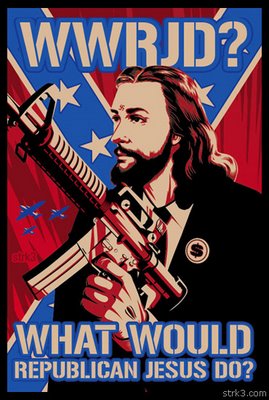 Those of us who profess a Christian faith are called upon to conduct our lives in accordance with the teachings of the Holy Bible. Now, there’s plenty of room for reasonable people to disagree over the particulars, given the historical context in which the Bible was written and the various ways it has been translated over the years. That’s why we have about a million different sects and denominations.
Those of us who profess a Christian faith are called upon to conduct our lives in accordance with the teachings of the Holy Bible. Now, there’s plenty of room for reasonable people to disagree over the particulars, given the historical context in which the Bible was written and the various ways it has been translated over the years. That’s why we have about a million different sects and denominations. But you know, all those mental gymnastics can get downright exhausting and confusing, and sometimes it’s hard to keep your story straight. People are more likely to call you out as a hypocrite, and it gets embarrassing when so many spiritual and political leaders who are most ardent about espousing “family values” get caught in bed with young boys or in motel rooms with gay prostitutes, or wiping out the retirement savings of millions of people while enriching their friends, or launching a bloody invasion of an impoverished country that was never a serious military threat. You get the idea.
But you know, all those mental gymnastics can get downright exhausting and confusing, and sometimes it’s hard to keep your story straight. People are more likely to call you out as a hypocrite, and it gets embarrassing when so many spiritual and political leaders who are most ardent about espousing “family values” get caught in bed with young boys or in motel rooms with gay prostitutes, or wiping out the retirement savings of millions of people while enriching their friends, or launching a bloody invasion of an impoverished country that was never a serious military threat. You get the idea.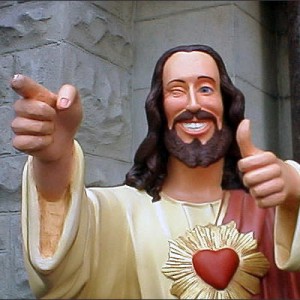 One can only speculate what the new Conservative Bible looks like:
One can only speculate what the new Conservative Bible looks like: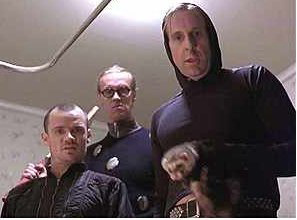 This morning I spent 20 minutes on a jam-packed train with no A/C, sitting next to two religious nutcases who were loudly babbling nonstop about Jesus, Satan, the flu, police brutality, and other profound topics of the day. I was an Episcopalian in good standing when I boarded the train at DeKalb Avenue, I had become agnostic by Bedford Avenue, and I was a militant atheist by the time I got off the train at Union Square.
This morning I spent 20 minutes on a jam-packed train with no A/C, sitting next to two religious nutcases who were loudly babbling nonstop about Jesus, Satan, the flu, police brutality, and other profound topics of the day. I was an Episcopalian in good standing when I boarded the train at DeKalb Avenue, I had become agnostic by Bedford Avenue, and I was a militant atheist by the time I got off the train at Union Square.